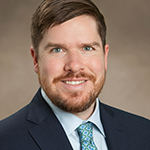RPC Section 18.001 Consultants
Ronald T. Luke
JD, PhD
President
Brian Piper
PhD
Senior Consultant
Angela VanDerwerken
PhD
Senior Consultant
Peggy Hamilton
CPA
Senior Consultant

What is Texas Civil Practice and Remedies Code §18.001?
Texas Civil Practice and Remedies Code §18.001 created a procedure that allows plaintiffs to assert by affidavit the reasonableness and necessity of past medical expenses the medical provider or an expert having to testify. It prevents challenges to the reasonableness of charges for services or the medical necessity of services at trial unless the defendant files a timely counter-affidavit. It has significantly limited defense challenges of past medical expenses in personal injury cases.
The Impact of House Bill 1693 on Section 18.001
The 86th regular session of the Texas Legislature passed and the Governor signed House Bill 1693, An Act relating to affidavits concerning cost and necessity of services (See the full text here). This act made important changes to Section 18.001 that increased the ability of defendants to file counter-affidavits to challenge past medical expenses.
RPC’s Qualified Experts for Counter-affidavits
Plaintiffs often try to exclude counter-affidavits on reasonableness of charges by challenging the qualifications of the defense expert. A physician in the appropriate specialty is needed to challenge medical necessity. Recent court decisions in Saucedo v. Brown and Gunn v. McCoy made clear that an expert need not be a clinician to controvert the reasonableness of medical charges. RPC has physician consultants to prepare affidavits controverting medical necessity and economists to prepare affidavits controverting the reasonableness of charges.
Data Sources to Determine Reasonableness of Charges
RPC uses data from several sources to determine reasonableness of charges. The data are compiled by the Center for Medicare and Medicaid Services (“CMS”), by the Department of State Health Services, Texas Health Care Information Collection (“THCIC”) and by generally accepted publications.
These sources provide data on charges by physicians, hospitals, surgery centers, emergency departments, nursing homes, and other providers.
To discuss these recent developments or counter-affidavits for a specific case, contact our Section 18.001 consultants.





